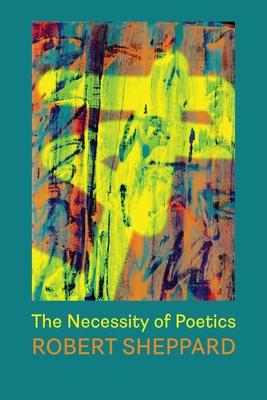The Necessity of Poetics marks the moves Robert Sheppard has made as a poet-critic around the notion of poetics in general, and the poetics of linguistically innovative poetry in particular, and his own poetics as an outcome of those. It traces those moves, but offers them to fellow poets, critics, and even to literary historians. It incites and ignites and invites readers to identify poetics, to read poetics (as poetics, not as an impoverished literary criticism), to share poetics and, where appropriate, for readers who are also writers, to create poetics of their own.
Also contained here is Sheppard's experimental essay on poetic rhythm. Addressing the contemporary lack of discussion of the subject, 'Pulse' presents a new way of conceiving of metrical and non-metrical shape, rhythm as a form of consciousness, bringing together suggestive theory and the experiences of poets themselves. Abruptly changing gear from critic to poet, via poetics, Sheppard's poetic thinking is alive to the notion that poetic form is cognitive, that form knows something.
There are insights into the poetry and poetics of Christopher Middleton, Adrian Clarke, Pierre Joris, Maggie O'Sullivan, Allen Fisher, Lee Harwood, and Veronica Forrest-Thomson. He also digs into the processes of his own poems to come up with generalized truths about poetics and poesis, experimenting with new modes of creative-critical writing, as a seasoned practitioner and pedagogue of Creative Writing, in quite personal practice-led research. From a 'radio-talk with no station to transmit it' about radio as an analogy for poetry, to an 'undelivered talk' on photographic ekphrasis; from recent takes on his recent 'English Strain' sonnet project to rare documents that take the reader back to the emerging linguistically innovative practices of the late 1980s, this rich volume presents a relentless and repeated advocacy for poetics as a genuine mode of thinking and writing. And poetics as an object of study in its own right.
